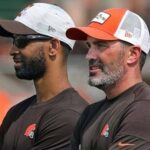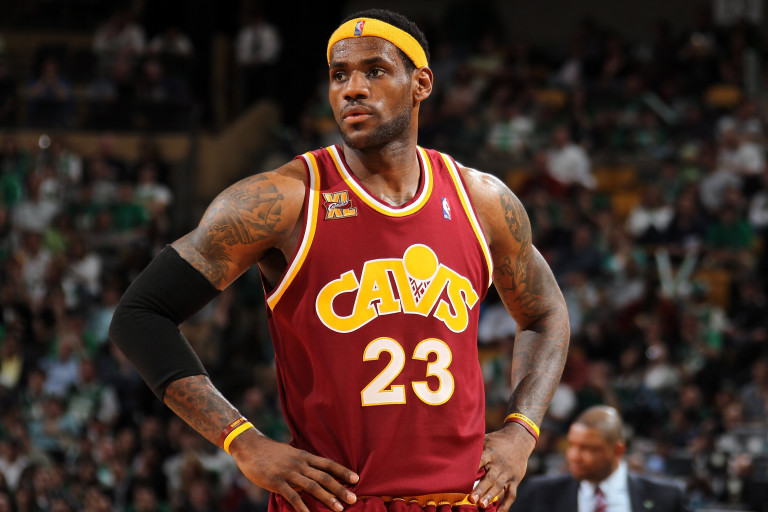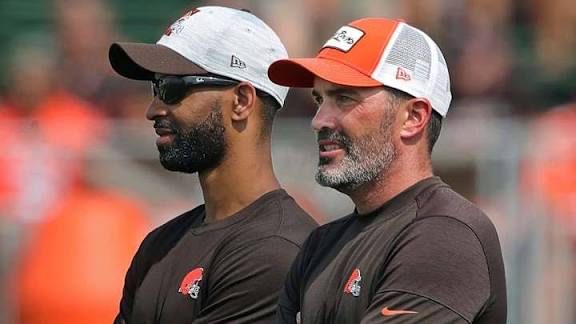The Cleveland Cavaliers’ LeBron James is the greatest small forward the league has ever seen.
That title used to be reserved for the Boston Celtics’ Larry Bird, but James, who rejoined the Cavs during free agency this past summer, has surpassed him with his brilliant play during his career. That might sound like an inflammatory statement, but LeBron can no longer be denied.
One can understand the reverence for Bird considering the sentiment that exists among purists and diehard basketball fans that both he and the Los Angeles Lakers’ Magic Johnson saved the NBA with their intense rivalry during the 1980s.
“Many like to credit [former commissioner] David Stern with reviving the league,” said Andy Katz over at ESPN.com in 2000. “But where would David Stern be without Magic Johnson and Larry Bird?”
Bird joined the league at a time when it was struggling and helped turn it around by playing a brand of basketball few had ever seen. He always played hard and the right way.
At 6’9”, he was a devastating scorer (24.3 career points per game), shooter (career 49.6 percent field goal) and passer (6.3 career assists per game). His do-it-all ability and mentality were a big reason why the Celtics were always contenders for the title. Indeed, the Hall of Famer twice led the league in Win Shares twice in both the regular season and playoffs.
What’s more, Bird had a terrific flair for the dramatic, which was perfectly captured during the 1987 Eastern Conference Finals. With the Detroit Pistons leading by a point in the closing seconds of Game 5, Bird stole the inbound pass and fed a streaking Dennis Johnson for a score that propelled the Celtics to a victory.
Bird is rightfully a mountainous figure, which makes it all that more amazing that James has moved past him.
Much like Bird, we could tell very early on that LeBron was a unique player. He came into the league as a 6’8” point guard (yes, he played point guard to start out his career) with the build of a power forward.
LeBron used to merely be a physical freak with impeccable passing skills, and now he’s regarded as one of the best perimeter players in the history of the sport.
James assessed all of his weaknesses (broken jumper, lack of post game and inability to defend) and turned them into strengths despite the numerous advantages already working in his favor.
His size, speed, quickness, agility and smarts always gave him an edge against most opponents, but it seemed insufficient despite the fact he turned the Cavaliers into perennial contenders.
However, the inability to break through and win a title in Cleveland humbled LeBron and forced him to make two big decisions: join Dwyane Wade and Chris Bosh with the Miami Heat and improve as a player.
While some viewed his relocation as a capitulation of sorts, it was anything but.
LeBron wanted what Bird and Magic had obtained before him on the path to glory: teammates capable of sharing part of the championship responsibility. Many ridiculed James for moving to South Beach, but as Grantland’s Bill Simmons noted in July, he needed players capable of occasionally playing at his level.
“What if he KNEW he was a genius?” Simmons asked. “What if he was searching for some basketball version of the Holy Grail, some higher state of being, a level of basketball that he couldn’t find in Cleveland?”
We actually saw James unleashed when he arrived in Miami. Freed from the shackles of playing point forward, he became what we always hoped: the most complete player in basketball.
LeBron is now a good shooter from just about every spot on the floor. In addition, he can now anchor the offense from the low-post area because of a refined back-to-the-basket game and impressive passing ability.
Furthermore, he might be the most versatile defensive player since Dennis Rodman and Scottie Pippen because he defends all five positions at a high level. After 11 seasons, James’ defensive win shares (51.5) are already creeping up on Rodman’s (54.5) and Pippen’s (67.5), who played 14 and 17 seasons respectively.
If one needs evidence of this, look back at the 2011 Eastern Conference Finals where James blanketed league MVP Derrick Rose at the peak of his powers in every fourth quarter of the series. Need a more recent example? He did the same in spurts to the San Antonio Spurs’ Tony Parker during the 2013 Finals.
It’s not just that LeBron can seemingly shut down players on command; rather, he does these things while continuously giving his teammates everything they need to be successful.
“He’s been great at basketball for years and years, but now he’d figured out the sport itself,” Simmons added. “He reached that final level.”
When looking back at history, it’s hard to find a player with this level of success who was tasked with doing literally everything in order for the team to win. It’s a curse that very few have suffered in the sport, as basketball historian Bob Ryan observed.
“I said I have never seen anything quite like him, and I haven’t,” Ryan wrote over at The Boston Globe in June 2013. “I’ve never seen anyone with his size and strength combined with such quickness and such a generosity of basketball spirit. It is almost as if he is tortured by the reality of his individual greatness.”
Don’t get me wrong, Michael Jordan was a great scorer, elite defensive player and clutch player, but the Bulls didn’t need him to bring up the ball, run the offense, protect the basket and get out in transition.
This isn’t to say that LeBron is better than Jordan, but it does speak to James’ terrific all-around play. Shift things back to Bird, and that’s where LeBron surpasses Larry Legend.
Bird was a sensational player who carried a big load, but it wasn’t even remotely close to LeBron’s. Granted, Larry’s impressive offensive repertoire nearly puts him on an even footing with LeBron. Much like his counterpart, he understood the game flawlessly and provided the Celtics with whatever they were lacking during a given game.
James and Bird are close to equals on this front, but LeBron’s defense is the game-changer here. There are so many things the Heat were able to do on their way to two titles because of James.
Miami could switch on pick-and-rolls involving small and big defenders (even early in the shot clock, which isn’t the norm), trap ball-handlers far away from the basket and apply full-court pressure. James could handle all of those responsibilities and guard the opponent’s best scorer along the way.
LeBron’s combination of exceptional offensive skill and tremendous defensive prowess led to him capturing four league MVP trophies (one more than Bird), two Finals MVPs (same as the Legend), eight All-NBA first-team selections (Bird has nine) and five All-Defensive first-team honors (none by Bird).
The Blemishes
Discussions about all-time greats become a tricky proposition when failures make their way into the equation.
Players from previous generations benefit from a certain mystique because their shortcomings become forgotten, while current athletes’ blemishes are perceived as far more prevalent.
In James’ case, the knocks on him are the final two games of the 2010 Eastern Conference Semifinals against the Boston Celtics and the last three games of the 2011 Finals against the Dallas Mavericks.
Against Boston, LeBron displayed no aggression whatsoever in Game 5 and basically sleepwalked through that contest. He played better in the following game but looked a little disinterested despite registering a triple-double (27 points, 19 rebounds and 10 assists).
The defeat at the hands of Boston prompted James to relocate to Miami, where he eventually became a champion. However, before clearing that hurdle, he failed with the Heat in his first season with the team.
LeBron disappeared in the fourth quarter of Games 4, 5 and 6, and he watched the Mavericks celebrate the title on the Heat’s court.
As bad as those moments were for James’ legacy, some perspective is needed. James was labeled as a choker of the highest order, a player incapable of rising to the moment based on a sample size of five postseason games.
Sure, the playoffs are the grandest stage of them all, but where do those five contests fit in the context of LeBron’s 158 career postseason games? They certainly matter, but it’s worth noting they only represent 3.2 percent of his career postseason games.
Who else is held to this same standard?
Take this example: The Lakers’ Kobe Bryant averaged 22.6 points, 2.8 rebounds and 4.4 assists on 38.1 percent shooting during the 2004 Finals (five games).
It’s been largely forgotten despite the fact he attempted 29 more shots than Shaquille O’Neal, who was converting 63.1 percent of shots during the series. By the way, the Lakers lost that round to the Detroit Pistons.
Bryant illustrates that, with a bit of time, clarity and perspective come into place. We realize that fairly small failures just don’t matter as much as initially perceived. Interestingly enough, the same applies to Bird.
Bird’s team won the title, but an argument could be made that it was the product of other Celtics coming through to secure the title against the Houston Rockets.
Perhaps James’ shortcomings would be viewed through a different prism if his teammates in Cleveland and Miami had bailed him out, and it’s worth noting that they did not. With that said, I find it difficult to reduce James’ career when confronted with Bird’s based on a five-game sample.
Keep in mind, LeBron has been more durable than Bird, which essentially mitigates the impact of his disappearing acts.
Indeed, he’s already played 1000 games (regular season and playoffs combined) in 11 seasons, while Bird appeared in 1061 during 13 campaigns. LeBron should pass him by the end of the 2014-15 season.
The sheer volume of LeBron’s numbers and accomplishments outweigh the no-shows on his resume and do very little to reduce his case against Bird.
Bird is in James’ rearview mirror, and it’s fair to wonder who else will fall in the all-time rankings.
LeBron is aiming for Jordan’s crown, which will be an incredibly tough challenge. “I want to be the greatest of all time,” James said, according to Bleacher Report’s Ethan Skolnick in September 2013. “And that’s my motivation. … It’s not simple, but for me it is. That’s my mindframe.”
His resume certainly gives him a shot, and it’s fair to say that no active player is more decorated than James. No one can match LeBron’s four MVPs, two All-Star Game MVPs and two Finals MVP awards. Heck, even a quick glance into history indicates that LeBron is in rarefied air based on his hardware collection.
Only three players have collected more Maurice Podoloff awards (Kareem Abdul-Jabbar, Michael Jordan and Bill Russell) and a mere five have come by more All-Star Game MVP trophies (Shaquille O’Neal, Oscar Robertson, Jordan, Kobe and Bob Pettit).
As it pertains to the Finals MVP, there are only four names looking down at LeBron’s (Jordan, Tim Duncan, O’Neal and Magic Johnson).
James is situated among basketball royalty, and it seems extremely conceivable that he will continue to narrow the gap separating him from the top spot.
He’s not yet on Mount Rushmore, but he’s certainly going to challenge its mainstays after beating out Bird.
“I’m going to be one of the top four that’s ever played this game, for sure,” James said to Steve Smith in a February NBA TV interview. “And if they don’t want me to have one of those top four spots, they’d better find another spot on that mountain. Somebody’s gotta get bumped, but that’s not for me to decide.”
He’s correct in his assessment.
One could argue about James’ rank in the list of top 10 greatest players ever, but not those who are ahead of him: Jordan, Abdul-Jabbar, Magic, Wilt Chamberlain, Duncan and perhaps Russell. Will LeBron ever equal MJ? It’s tough to say, but I’m not going to dismiss the possibility no matter how hard it will be for the King to reach His Airness.
With that in mind, Chamberlain, Duncan and Russell are all in play, and James will likely knock them down within the next three years.
With a couple of productive seasons combined with another MVP and perhaps even a championship in his beloved city of Cleveland, LeBron will overtake them and become one of the game’s four greatest players.


